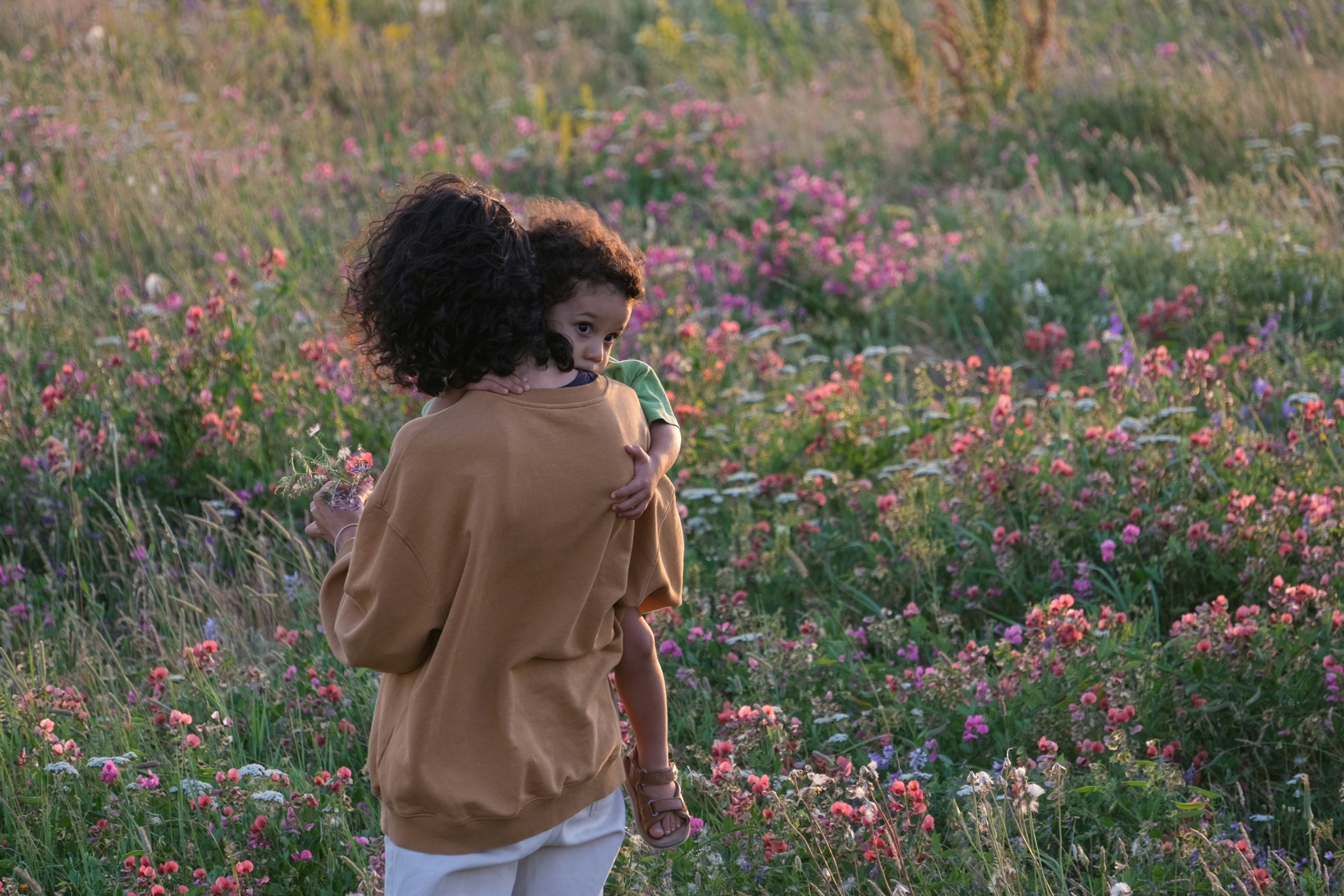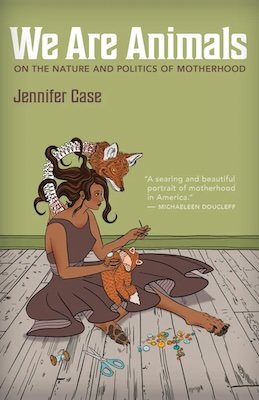When I started to write about motherhood a decade ago, the topic still carried a tinge of shame. Writers tended to fear motherhood would push them into some unsightly box, as if they’d succumbed to something less serious than the laudable material of their (non-mothering) peers. In the Los Angeles Times in 2017, Sarah Menkedick discussed her initial tendency to “apologize” for writing about being a mother. “Patriarchal culture,” she observed, “has reduced motherhood to an exercise no serious artist would tackle as a subject.” I felt that silence. When my daughter was a newborn, I remember putting her in a Moby Wrap and searching the library’s shelves for books that captured what my life was becoming. I didn’t search for parenting books—of which there were plenty—but lyrical, literary depictions of the actual, internal experience of being a mother. Books that captured that sometimes-joyous, sometimes-heartbreaking, sometimes-painful transition I was making. Such books were few and far between.
Thankfully, that has started to change. I can think of nearly a dozen books published in the last few years that explore motherhood. Perhaps due to conversations surrounding reproductive justice, perhaps due to the heightened stressors mothers faced during Covid-19, perhaps due to high percentages of women and non-binary students in MFA programs, more and more contemporary writers are interrogating motherhood. I count myself among these writers—and my own essay collection, We Are Animals, among these books—and I am grateful for this shift.
Yet within this current cultural moment, I’ve found that the richest, most nuanced books continue to strike me as those I turned to again and again when my daughter was young. Books that sent their observations and words out into a world that didn’t always offer a landing spot for literary narratives of motherhood. But books that remain, to me, some of the best on the subject.
Dirt and Honey by Raquel Vasquez Gilliland
One of the most overlooked and underrated books about motherhood I can think of is Raquel Vasquez Gilliland’s collection of poems, Dirt and Honey. To be honest, the book isn’t so much about motherhood as it is about creation, femininity, the maternal, and our ancestral ties to the earth. This is a book that merges the personal with the mythical, and the embodied with the ethereal. The language sings and surprises throughout the collection, but I especially appreciate the book’s willingness to mix religious allusions, personal experiences, and ecofeminist retellings. In Dirt and Honey, the feminine and maternal are a rich, entangled knot of the individual, ancestral, political, and spiritual, and Gilliland truly honors that richness.
Bring Down the Little Birds by Carmen Giménez
In Bring Down the Little Birds, Carmen Giménez captures the experience of mothering a young child, gestating a second, trying to maintain a writing career, and adjusting to her own mother’s brain tumor and dementia. The threads are woven together beautifully, and Giménez’s gifts as a poet clearly come through in this, her first work of nonfiction. Stylistically, the memoir is fragmented, sparse, and lyrical. Giménez writes of motherhood the way Sarah Manguso writes of motherhood—though Giménez published her book first. Readers who sometimes struggle to balance motherhood with an artistic career will especially appreciate Giménez’s quips at the writing life.
The Blue Jay’s Dance by Louise Erdrich
There’s a moment in The Blue Jay’s Dance where Louise Erdrich describes dressing her newborn in “her bunting” and “cart[ing] her across the road” to Erdrich’s writing studio, where the baby sleeps and cries and later crawls across the floor. Erdrich, meanwhile, tries to write, though more often she observes the natural world around her and reflects on family history and what it means to mother. In this way, early motherhood is intertwined with the changing seasons, with the nesting blue jays, with the spring kittens, the deer, and the morning glories and foxglove. Reading The Blue Jay’s Dance when my own daughter was young felt like immersing myself in a sacred holding space. The book is meditative, quiet, comforting, and profound.
Tender Hooks by Beth Ann Fennelly
Beth Ann Fennelly’s Tender Hooks is, quite frankly, a delight—the kind of poetry book you’ll pick up with curiosity but then read cover to cover in a single sitting. The book explores early motherhood, from childbirth to breastfeeding to weaning, and it reads like the memoir of a woman bruised but in wonder from it all. Although Fennelly approaches motherhood with depth, nuance, and lyricism, her greatest gift is her humor—witty, embodied, and sometimes wonderfully profane. I especially appreciated the couplets interspersed throughout, such as “Gong”:
From the kitchen, fixing her a bottle, I hear it:
two milk teeth against my beer can.
Great with Child by Beth Ann Fennelly
Also by Beth Ann Fennelly, and published around the same time as Tender Hooks, is Great with Child, which presents a series of letters that Fennelly wrote to a pregnant mentee about preparing for motherhood. The letters are poetic, comforting, and affirming, and readers who are balancing an artistic career with early motherhood will especially appreciate the light-hearted advice and empathy that Fennelly provides.
Having Faith by Sandra Steingraber
“Early motherhood is an extreme sport,” Sandra Steingraber writes in Having Faith; “Sleep deprivation is part of the problem. This will not come as news to anyone who has ever had a baby, but before I gave birth, I had naively assumed that some mystical, mother-love hormone would kick in and make it possible for me to endure sleeplessness in ways that non-mothers cannot. I am somehow astonished to discover that being awakened at 2 AM feels just as awful as it ever did.” For those looking for an account of motherhood written by someone who clearly understands the science, yet who can also maintain a compelling narrative voice, ecologist Sandra Steingraber’s Having Faith offers it. Steingraber seamlessly integrates personal anecdotes with narrative about the biological experience of motherhood in a manner that is lyrical, humorous, and grounding. If you haven’t read it, you should.
The M Word edited by Kerry Clare
An anthology, The M Word brings together short essays by female Canadian women writers. “The M Word: it means something to every woman. Exactly what it means is rarely simple,” the book jacket states, and they are right. If what we long for in motherhood books is complexity, and moments when joy and sorrow and boredom and anger can rub against each other, side by side, this book certainly offers that. It isn’t a celebratory motherhood book—the kind you might see at the bookstand at Target around Mother’s Day. Instead it is real, well-written, evocative, and diverse, containing essays about infertility, being a stepmom, deciding not to have children, and childbirth. It left me able to hold the complexities of my own experience, and to see those complexities as beautiful.
Take a break from the news
We publish your favorite authors—even the ones you haven’t read yet. Get new fiction, essays, and poetry delivered to your inbox.
YOUR INBOX IS LIT
Enjoy strange, diverting work from The Commuter on Mondays, absorbing fiction from Recommended Reading on Wednesdays, and a roundup of our best work of the week on Fridays. Personalize your subscription preferences here.

